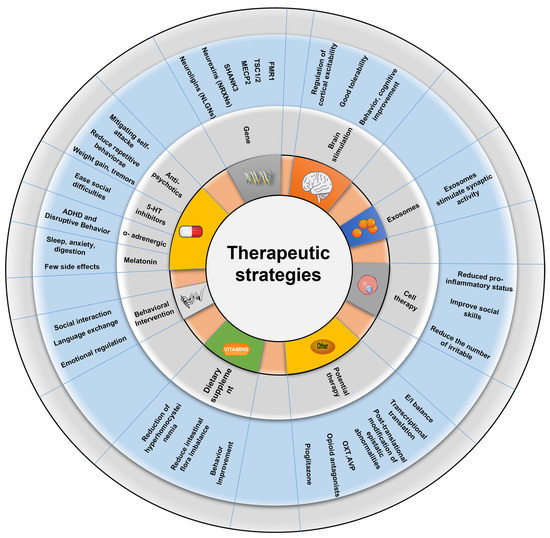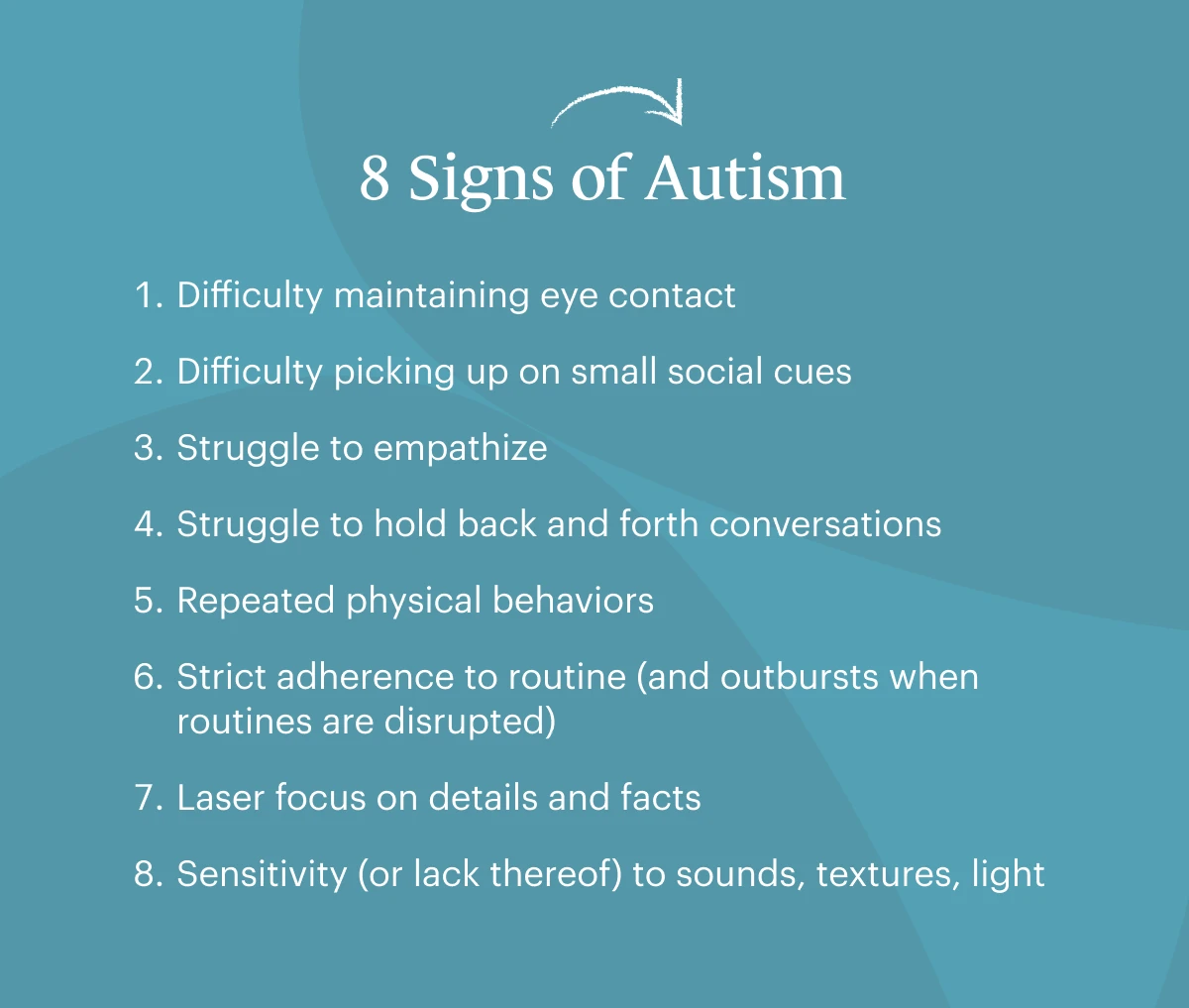How the right Autism Therapist can improve daily routines for those managing ASD
How the right Autism Therapist can improve daily routines for those managing ASD
Blog Article
Understanding the Influence of Behavioral Autism on Every Day Life and Social Communications
You may not realize exactly how deeply behavioral autism influences everyday life and social communications. Individuals on the spectrum frequently browse a world filled with interaction difficulties and sensory overload. These obstacles can lead to irritation and seclusion, impacting their partnerships and total wellness.
Specifying Behavioral Autism and Its Attributes
Behavioral autism, typically described as autism spectrum problem (ASD), incorporates a series of problems defined by challenges in social communication, interaction, and repeated actions. You might observe that individuals with ASD often battle to interpret social signs, which can cause misconceptions in discussions. They might discover it hard to develop eye contact or take part in tiny talk, making social circumstances really feel overwhelming.
Interaction problems can show up in various means, from delayed speech growth to a preference for utilizing less words. Repeated habits, such as hand-flapping or rocking, can offer as coping systems to take care of stress and anxiety or sensory overload. These qualities can greatly impact life, making it essential for you to comprehend and sustain those with ASD. By identifying these characteristics, you can promote an environment that promotes acceptance and motivates reliable interaction, aiding people with autism thrive in their day-to-day interactions.
The Range of Autism: Comprehending Irregularity in Habits
Autism spectrum disorder (ASD) isn't a one-size-fits-all medical diagnosis; it differs commonly amongst people. You might discover that some people with ASD show moderate symptoms, while others may encounter extra significant difficulties. This variability can manifest in behaviors, rate of interests, and sensory sensitivities. You might come across people who are highly spoken and involve quickly in discussions, while others might choose solitary tasks or interact non-verbally.
Furthermore, the method individuals with ASD reply to sensory input can differ significantly; some may be overwhelmed by brilliant lights or loud sounds, whereas others grow in stimulating atmospheres. The spectrum also consists of distinctions in social communications; some individuals may battle to interpret social signs, while others navigate social setups with loved one ease. Comprehending this irregularity is essential, as it helps you value each individual's special experience and dressmaker support to their particular requirements, cultivating a much more inclusive atmosphere for everyone.
Communication Challenges Encountered by Individuals With Autism
When you engage with individuals on the autism range, you may see their distinct communication difficulties. They usually encounter problems with both nonverbal and verbal signs, which can impact their social communications. Comprehending these obstacles is vital for cultivating much better connections and support.

Verbal Communication Troubles
Many people on the autism range experience verbal communication difficulties that can substantially impact their daily interactions. Your tone, rate, or quantity may not line up with social assumptions, causing others to misinterpret your intents. Acknowledging these obstacles can aid you and your assistance network create methods to enhance communication and cultivate far better connections with others in your daily life.
Nonverbal Interaction Barriers
Verbal communication isn't the only challenge individuals on the autism range face; nonverbal interaction barriers can be simply as considerable. These difficulties can lead to misconceptions or misinterpretations of social hints, making communications feel complex or frustrating. By dealing with nonverbal communication, you can locate techniques to enhance your social experiences and boost your overall high quality of life.
Social Communication Impacts
Social communications can typically really feel overwhelming due to the special interaction difficulties encountered by people with autism. Identifying these difficulties can aid you find strategies to boost communication, such as practicing social abilities in safe setups or utilizing aesthetic aids. Understanding your requirements allows you to browse social interactions with better confidence and convenience.
Social Interaction and Partnership Building in Autism
While structure relationships can be testing for individuals with autism, comprehending their unique viewpoints and interaction styles can cultivate meaningful links. You might see that lots of people on the spectrum like straight communication and might battle with social signs or tiny talk. By being straightforward in your interactions, you can aid produce an atmosphere where they really feel comfortable.
Engaging in shared passions can additionally serve as a bridge to deeper connections. Whether it's a leisure activity, a favorite show, or a common enthusiasm, these usual threads can open up doors to relationship.
Day-to-day Live Regimen: Browsing Methods and difficulties
Steering day-to-day life regimens can be especially challenging for people with autism, especially when unanticipated modifications take place. To browse these difficulties, take into consideration carrying out visual routines or checklists.
Establishing a regimen that consists of sensory breaks can also be beneficial. This assists create an understanding setting.
Lastly, method mindfulness methods to take care of tension and anxiety. Simple breathing exercises or grounding techniques can make a substantial distinction. By incorporating these approaches, you can improve your daily routine and decrease disturbances, making life feel more convenient.
Staminas and Abilities of Individuals on the Autism Range
Comprehending daily life regimens is simply one facet of the autism experience. Numerous individuals on the autism spectrum possess exceptional toughness and capabilities that set them apart.
In addition, your memory abilities typically beam, especially in locations of passion. look at this website Aba Therapist Near Me. This propensity for preserving information can make you an important source in areas like science, innovation, or art. You may likewise show solid aesthetic reasoning, allowing you to envision intricate concepts and solve issues artistically
Additionally, your distinct viewpoint on the globe can foster empathy and understanding in others, improving social communications. Embracing these toughness not just increases your self-confidence but also assists others value the pop over to this web-site varied abilities you give the table.
Developing Comprehensive Environments for Individuals With Autism
Developing comprehensive atmospheres for people with autism begins with making sensory-friendly areas that deal with their distinct needs. You can additionally promote chances for social interaction, helping to construct friendships and links. By making these adjustments, you'll contribute to a more inviting atmosphere for everyone.
Designing Sensory-Friendly Spaces
While creating sensory-friendly spaces, it's important to reflect on the distinct needs of individuals with autism. Integrate peaceful areas where people can recharge and pull away when overwhelmed. Consist of visual routines or clear signage to help people browse the area confidently.
Promoting Social Interaction Opportunities
Designing sensory-friendly areas not only addresses private comfort yet also sets the stage for purposeful social communications amongst people with autism. Encourage peer mentoring, matching people with autism with supportive peers that can direct them via social circumstances. By implementing these strategies, you can improve social opportunities, assisting people with autism develop relationships and enhance their social abilities in a risk-free, welcoming setting.

Regularly Asked Questions
Just How Can Pals Support A Person With Behavioral Autism?
You can support a friend with behavioral autism by being person, listening actively, and appreciating their borders. Take part in activities they take pleasure in, connect openly, and produce a comfy atmosphere where they really feel valued and recognized.
What Resources Are Available for Parents of Kid With Autism?
You can discover various sources for parents of kids with autism, including support teams, instructional sites, and local social work. Getting in touch with other moms and dads can additionally give important insights and shared experiences to aid browse challenges.
Can Behavioral Autism Adjustment Over Time?

Yes, behavior autism can transform with time. You could observe shifts in interaction, social skills, and habits as your kid grows. Early intervention and assistance often play essential functions in these developmental changes.
Just How Do Sensory Level Of Sensitivities Influence Every Day Life?
Sensory level of sensitivities can make day-to-day experiences frustrating. You may struggle with bright lights or loud sounds, resulting in stress or avoidance. Discovering atmospheres that suit your demands can significantly boost your comfort and general every day life.
What Are Usual Misconceptions About Behavioral Autism?
You might assume behavior autism just impacts interaction abilities, however it's more facility. Several think people do not have compassion or knowledge, which isn't true. Recognizing these mistaken beliefs aids foster approval and assistance for those on the range.
Behavioral autism, commonly referred to as autism range problem (ASD), encompasses a range of conditions identified by obstacles in web link social interaction, communication, and repeated habits.Social communications can usually feel frustrating due to the special interaction obstacles encountered by individuals with autism.Designing sensory-friendly spaces not only addresses private convenience but likewise establishes the stage for purposeful social communications among individuals with autism. Urge peer mentoring, coupling people with autism with helpful peers who can guide them via social scenarios. By applying these approaches, you can boost social chances, helping people with autism construct friendships and strengthen their social skills in a secure, inviting environment.
Report this page